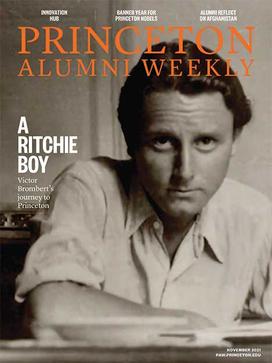Agreement on PAW Relieves Class Burden, Ensures Editorial Independence

Under the agreement, the University is funding 100 percent of the magazine’s budget. Previously, PAW’s operations were funded by a combination of class payments, advertising income, and a subsidy from the University. “Classes will now be able to devote their dues to their own projects without paying subscription fees to PAW, and the magazine will continue to make advertising space available to all — including voices critical of University policies,” wrote PAW board chair Marc Fisher ’80 in a letter published online Oct. 18 and appearing in this issue on page 7.
Importantly, the memo of understanding includes a commitment to editorial independence for the magazine, which is a department of the University. As Fisher noted, University officials will not see articles before publication, while PAW’s independent advisory board will continue to oversee PAW’s editorial approach. Supervision of the magazine’s budget has shifted from the board to the University.
Until now, class payments — funded mainly by dues — have covered one-third of PAW’s operating costs. “The arrangement is a real win-win for alumni,” said Alexandra Day ’02, deputy vice president for alumni engagement, in an email to PAW. “It ensures that our beloved magazine — and alumni activities funded by class dues — continue to thrive,” she wrote.
Readers can see the agreement online at bit.ly/PAW-MOU.
In another change, all graduate alumni will begin receiving all issues of PAW in 2022. Only graduate alumni who are members of the APGA now receive all 11 issues, while others receive five issues per year.











No responses yet